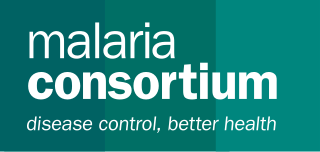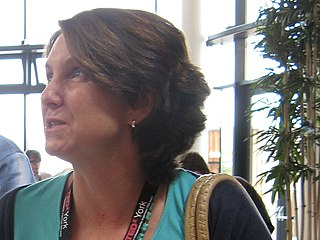
Agricultural science is a broad multidisciplinary field of biology that encompasses the parts of exact, natural, economic and social sciences that are used in the practice and understanding of agriculture.

Plant pathology is the scientific study of diseases in plants caused by pathogens and environmental conditions. Organisms that cause infectious disease include fungi, oomycetes, bacteria, viruses, viroids, virus-like organisms, phytoplasmas, protozoa, nematodes and parasitic plants. Not included are ectoparasites like insects, mites, vertebrate, or other pests that affect plant health by eating of plant tissues. Plant pathology also involves the study of pathogen identification, disease etiology, disease cycles, economic impact, plant disease epidemiology, plant disease resistance, how plant diseases affect humans and animals, pathosystem genetics, and management of plant diseases.

The Department for International Development (DFID) was the government department of the United Kingdom responsible for administering overseas aid. The goal of the department was "to promote sustainable development and eliminate world poverty". DFID was headed by the United Kingdom's Secretary of State for International Development. The position was last held between 13 February 2020 and the department's abolishment on 2 September 2020 by Anne-Marie Trevelyan. In a 2010 report by the Development Assistance Committee (DAC), DFID was described as "an international development leader in times of global crisis". The UK aid logo is often used to publicly acknowledge DFID's development programmes are funded by UK taxpayers.

The Central Science Laboratory (CSL) was an executive agency of the UK government branch, the Department for Environment, Food and Rural Affairs (DEFRA). It is now part of the Food and Environment Research Agency, which is in turn part of DEFRA.

The Indian Council of Medical Research (ICMR), the apex body in India for the formulation, coordination and promotion of biomedical research, is one of the oldest and largest medical research bodies in the world. The ICMR is funded by the Government of India through the Department of Health Research, Ministry of Health and Family Welfare. In 2007 the organization established the Clinical Trials Registry - India, which is India's national registry for clinical trials.

Services Hospital is located on Jail Road Lahore, Punjab, Pakistan opposite to the race course park and is the teaching hospital of Services Institute of Medical Sciences(SIMS). It is recognized by the Pakistan Medical and Dental Council, for under-graduate as well as by College of Physicians and Surgeons for post graduate training.
CABI is a not-for-profit inter-governmental development and information organisation focusing primarily on agricultural and environmental issues in the developing world, and the creation, curation and dissemination of scientific knowledge.
Meloidogyne javanica is a species of plant-pathogenic nematodes. It is one of the tropical root-knot nematodes and a major agricultural pest in many countries. It has many hosts. Meloidogyne javanica reproduces by obligatory mitotic parthenogenesis (apomixis).

Tobacco rattle virus (TRV) is a pathogenic plant virus. Over 400 species of plants from 50 families are susceptible to infection.
The International Mycological Institute was a non-profit organisation, based in England, that undertook research and disseminated information on fungi, particularly plant pathogenic species causing crop diseases. It was established as the Imperial Bureau of Mycology at Kew in 1920 and amalgamated with CAB International in 1998.
The Animal Health Trust (AHT) was a large national independent charity in the United Kingdom, employing over 200 scientists, vets and support workers. Its objectives were to study and to cure diseases in companion animals, and to advance the teaching and practice of veterinary art and science. It was founded in 1942 by Dr WR Wooldridge CBE, FRCVS, and was awarded a Royal Charter on 29 July 1963. The Queen was the charity's patron from 1959 until the end of 2016, and the Princess Royal is its president. Based in Newmarket in Suffolk, it was a registered charity under English law and received no government funding. Following fundraising issues exacerbated by the Coronavirus pandemic, the charity was forced to close it's doors and enter liquidation on 31st July 2020

Malaria Consortium is an international non-profit organisation specialising in the comprehensive control of malaria and other communicable diseases – particularly those affecting children under five.
CAB Direct is a source of references for the applied life sciences It incorporates two bibliographic databases: CAB Abstracts and Global Health. CAB Direct is an access point for multiple bibliographic databases produced by CABI. This database contains 8.8 million bibliographic records, which includes 85,000 full text articles. It also includes noteworthy literature reviews. News articles and reports are also part of this combined database.
The National Health Laboratory Service (NHLS) is a South African national government institution established in 2001. It was created by merging the South African Institute for Medical Research (SAIMR), the National Centre for Occupational Health and the National Institute for Virology. It also absorbed various provincial health department and university-run pathology laboratories.

The Indian Institute of Spices Research (IISR) is an autonomous organization engaged in agricultural research related to spices in India. The institute has its headquarters in Moozhikkal, Silver Hills, Kozhikode, Kerala and is a subsidiary of Indian Council of Agricultural Research (ICAR), New Delhi, under the Ministry of Agriculture, India.
Noel Farnie Robertson (1923–1999) was a Scottish botanist and agriculturist who was elected a Fellow of the Royal Society of Edinburgh (FRSE).
The Global Alliance for Livestock Veterinary Medicines (GALVmed), formerly the Global Alliance for Livestock Vaccines (GALV), is a not-for-profit livestock health product development and access partnership. It operates as a public-private partnership and a UK registered charity headquartered in Edinburgh.
Cocoa necrosis virus (CNV) is a plant pathogenic virus of the genus nepovirus that infects Theobroma cacao en natura causing cacao necrosis disease. CNV is considered synonymous with Strain S of cacao swollen shoot virus. Unlike Cacao swollen shoot virus, it is not transmitted by mealybugs nor vectored by aphids, beetles, or leafhoppers that also commonly infest cacao. It is serologically, distantly related to Tomato black ring virus and very distantly related to Grapevine chrome mosaic virus.
Frances Joan Harvey Moore, OBE was a British plant pathologist, science administrator and conservationist.

Nicola Spence is the Chief Plant Health Officer and Deputy Director for plant and bee health at the Department for Environment, Food and Rural Affairs.









